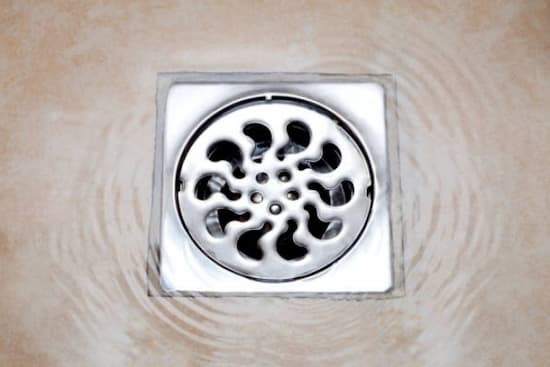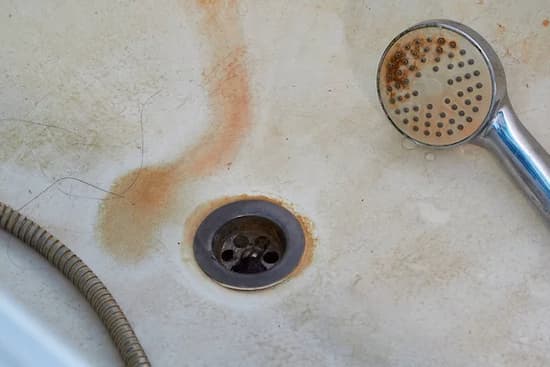If you want to learn how to unblock shower drain, then you’d be glad to know that the article I have prepared for today will discuss your concerns. As carefully as we may be, a blocked shower drain may occur from time to time due to the accumulation of solid compounds such as hair as the most common culprit for the problem. In events that it occurs, does it mean you need the services of an expert plumber right away? Well, not necessarily.
Fortunately, there are initial steps you can take to unblock shower drain before calling the aid of a professional. In this article, I will help you with how to unclog shower drain. I’ll also provide you with a list of how to properly maintain your drainage system and prevent clogging as much as possible. So without further ado, let’s begin…
- Ways to Unblock Shower Drain
- Tips on How to Prevent Shower Drain Blocking
- What Causes a Shower Drain Blocked?

Ways to Unblock Shower Drain
In the following section are ways how to fix drain in shower. Again, it could be an impossible task, to begin with, but just by having the knowledge and right skillset, you can successfully unblock the shower drain yourself. So let’s go over with each of them, and hopefully, it will help you how to unblock shower drain—
Remove the Drain Cover
First and foremost, you have to remove the drain cover first before you take any action. The positioning of the joints and style of the screws varies depending on the type of shower drain cover you are working with.
Use a Plunger Shower Drain
The most apparent method you can employ is using a plunger for the bathroom drain blocked. A plunger is the most effective way to remove any clogs blocking your drainage, no matter how severe the issue is. For instance, if the blockage is too deep within the pipes, then home remedies like the ones I will explain later would be of no use. And to improve the sanction of the plunger, you can apply petroleum jelly to it.
And if the item is not available at the moment, then there are ways to unblock shower drain without a plunger. Let’s move on and talk about them in a little more in detail.
Baking Soda and Vinegar
Sometimes simple home solutions such as baking soda and vinegar would suffice in unclogging the blockage in your shower drainage system. The first step you have to do is to mix the two solutions and then pour them into the drainage. After a few minutes, you pour hot boiling water to completely dissolve the clog.
However, you have to bear in mind that this would only work for shallow blockage, and you may indeed need a plunger or strong chemicals to remedy the situation.
Pull Out the Clog by Hand
If the clog is shallow and you can reach it by hand, then you have to do so if you will. But it’s still advisable to pour in hot boiling water to soften the clogs that may have hardened over time. Another thing you have to bear in mind if you’re using this method is that this could be a messy process. This is why you may appropriately have to wear gloves. Lastly, be sure to wash your hands afterward, even if you have worn gloves because the drainage is full of harmful microorganisms and pathogens.
Use a Plumber’s Snake
A plumber’s snake, popularly known as the electric eel or toilet jack, is a cheap bathroom and toilet maintenance tool with the same purpose as a plunger—and that is to unclog the drainage system. How it works is that you simply push the plumber’s snake down the pipe until the blockage is reached and then rotate it until the compound causing the clog is loosened up. Pour in regular tap water to completely clear and drain the blockage.
Chemical Solutions
You may use strong chemical solutions such as muriatic acid to dissolve the stubborn clog. However, if you are opting to use this method, then it’s highly advisable that you wear gloves, eye protection, and a face mask. Also, be sure that no child is within your sight. Due to the strength of the chemicals, it is better to be safe than to be sorry later.
If none of the remedies mentioned above seemed to have worked, it’s likely that the blockage is more severe than you might have previously thought. If this is the case—then this would be the best time to call a plumber for assistance.

Tips on How to Prevent Shower Drain Blocking
Shower drain blockage is indeed an inconvenience and highly annoying, especially if you are in the middle of your bath. Although a clog may happen anywhere in the future, there are ways you can do somehow impede its fast accumulation.
Brush Your Hair Before Taking a Shower
One of the common causes of blockage in the drainage is falling hair. With this being said—you can significantly prevent the buildup of clogs in your drainage just by brushing off the falling hairs before you take your routine shower.
Use a Hair Net
In some instances, brushing your hair may not be enough to prevent them from entering your pipe system. Therefore, another thing you can do about the hair situation is you can wear a hair net or hair catcher as you are taking a shower.
Avoid Using Grease and Oil
You may not be aware, but the oil and grease accumulated over time could lead to the grimes we see in the drainage. Our body produces oils as well, but it rarely builds up, which results in blockage in the pipes. However, the beauty products we buy with heavy oil substances could cause this issue. Therefore, you may want to avoid these products if you want to prevent the clog buildup.
Drain the Clogs at Once
An effective solution to remove the clogs in your drainage system is the drain all the elements causing the clogs all at once. What this means is that you may want to regularly check your kitchen sinks as well for blockage aside from your bathroom.
Call a Plumber
Again, if the problem persists, then you can call your local plumber service to assist your problems.
What Causes a Shower Drain Blocked?
The buildup of residue and other debris in the drainage results in a slower water drain or standing water in the shower drain. But to give you a better understanding of how the accumulation of clogs occurs, the following are five of the common culprits of the problem—
- Human and pet hair
- Chemicals or minerals present in hard water
- Grooming products with heavy oil or grease substance
- Unmanaged hygiene products like dental floss, cotton balls, tissues, wet wipes, etc.
- Old and rusting drainage pipes

Takeaway
Shower drainage blockage is a cause of concern because of the inconvenience that comes with it. Also, not to mention the skin diseases it could lead to due to the microorganisms present in the water. Although it may be a plumbing concern most of the time, there are initial steps you can do before you call them for assistance, as I discussed in the early parts of the article. You may want to observe first if the problem isn’t that severe and you can manage them on your own. In doing so, you’ll also save money on maintenance and repair costs.
I believe that’s just about it! Thank you for the time, and I hope today’s topic on how to unblock the shower drain has helped you with your bathroom issues.
Frequently Asked Questions about How to Unblock Shower Drain
Below are some of the commonly asked questions about how to unblock the shower drain—
If the blockage in the drain isn’t severe or it is shallow, then you can do home solutions instead of spending money on a plumber’s service cost. Some of the popular examples include using hot boiling water, a plumber’s snake, or the combination of vinegar and baking soda.
There’s no way you can dissolve hair stuck in the drain. However, you can use solutions to soften the clog and drain them eventually. Or, you can use a plumber’s snake or just grab it with your hands to scoop up the hair buildup.
0 Comments for “How to Unblock Shower Drain without a Plumber”